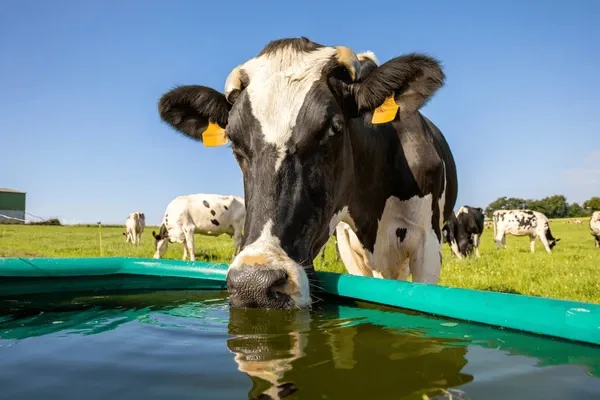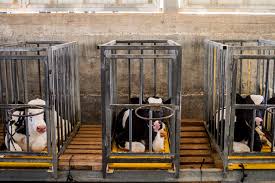5 Shocking Facts About the Meat Industry That Will Make You Think Twice

One of the biggest and most significant industries in the world is the meat industry. Its effects on human health, animal welfare, and the environment, however, are astounding. Before you reach for that next steak or burger, consider these five startling facts about the meat industry.
1. It's a Major Cause of Climate Change

One of the biggest contributors to greenhouse gas emissions is the meat industry, which produces more emissions than all of the cars, airplanes, and trains combined. Methane, a gas far more powerful than carbon dioxide, is released by livestock, particularly cows. Deforestation for grazing land in regions like the Amazon is another major contributor to the climate crisis, in addition to methane. Cutting back on meat consumption could help slow down climate change by cutting down on emissions from livestock farming and deforestation.
2. Water Use Is Startlingly Excessive

Approximately 1,800 gallons of water are needed to produce one pound of beef. This covers both the water used to grow the crops the cattle eat and the water they drink. On the other hand, it takes a lot less water to produce plant-based foods like grains, beans, and vegetables. The water-intensive nature of meat production makes it unsustainable in areas with limited water resources. Your water footprint can be significantly decreased by switching to plant-based substitutes.
3. Animal Cruelty in Factory Farms

Factory farms are notorious for their inhumane treatment of animals. Livestock are often kept in overcrowded, unsanitary conditions with no room to move. They endure painful procedures like tail docking and debeaking without anesthesia. Mother pigs, for example, are kept in tiny cages that prevent them from even turning around. These practices are standard in the industry, causing immense suffering. By choosing plant-based foods, we can help eliminate the demand for factory-farmed meat and reduce the cruelty involved.
4. Pollution and Waste from Factory Farms

Factory farms generate billions of tons of waste annually. This waste often pollutes local water supplies and emits harmful gases like ammonia and hydrogen sulfide, which degrade air quality and contribute to respiratory problems. The runoff from factory farms can contaminate nearby water sources, leading to the destruction of aquatic ecosystems. The environmental damage from the meat industry is severe, and by reducing meat consumption, we can help alleviate some of this pollution.
5. Health Risks of Eating Meat

A diet high in red and processed meats has been linked to an increased risk of heart disease, diabetes, and cancer. Processed meats, such as bacon, sausages, and hot dogs, contain nitrates and nitrites, which have been linked to cancer. Red meat is high in saturated fat, which raises cholesterol levels and contributes to cardiovascular problems. In contrast, plant-based diets are rich in fiber, antioxidants, and healthy fats, which reduce inflammation, improve heart health, and lower the risk of chronic diseases. Reducing meat intake and embracing plant-based foods can significantly improve your long-term health.
Conclusion
The meat industry’s environmental, ethical, and health impacts are vast and undeniable. From contributing to climate change and water waste to promoting animal cruelty and health risks, the consequences of our meat consumption are far-reaching. By reducing or eliminating meat from our diets, we can decrease our ecological footprint, protect animal welfare, and improve our health.
Making more conscious food choices, like opting for plant-based alternatives, can have a lasting positive effect on our planet and our well-being. It’s time to think twice before we continue supporting an industry that harms the environment, animals, and our health.




